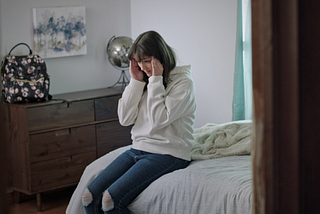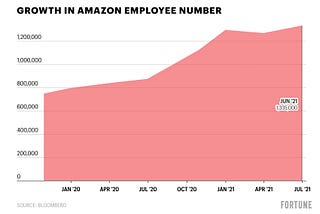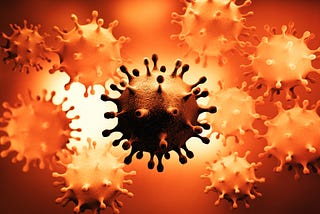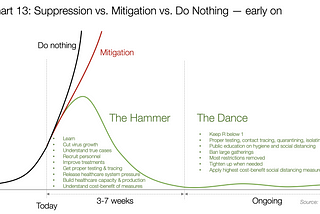Staff Picks: Pandemic Retrospectives
March 11th marked the 3rd anniversary of the World Health Organization declaring Covid-19 a global pandemic—here are some of the first-person perspectives and expert breakdowns you've published since then. (Share yours: publish a post and tag it "Pandemic Stories" on Medium)
Saturday, March 11, marks three years since the WHO declared Covid-19 a pandemic. How has your life changed in the last 3 years? Share a story on Medium and tag it "Pandemic Reflections." We'll share a selection of your stories in this list and on Medium's homepage.
"What it’s like to live the state with America’s lowest vaccination rate when you have a high-risk factor"
"When it hit the US, I did an illogical thing and took a job as a Behavioral Health Consultant in Oregon. Loading up the husky, the lab-retriever, and the cat, I packed my 24-foot motorhome with masks and disposable gloves and drove through four shelter-in-place states to work at a community health center."
"Lockdown forced us all to face ourselves, and some of us surfaced with knowledge that would change, or even save, our lives. The pandemic transitions felt like hope; like proof that even history’s worst moments could produce something beautiful."
Former CDC Director Dr. Tom Frieden: "Three years into the pandemic, we have more information about what causes long Covid, its clusters of symptoms, how to prevent it, who is most at risk — but still far too little to offer those who are struggling."
Dec 19, 2022
"The pandemic forced me to make decisions I wasn’t courageous enough to face. It showed me that my relationship was long dead, but I had been dragging its corpse around, hoping it would somehow come back to life."
"The pandemic led to the pregnancy and divorce happening at the same time. I don’t generally wear formal clothes but I had to buy some maternity formal clothes in case we ended up going to court."
"I remember finding a photographing buckets of food that neighbors left out, with notes inviting each other to take what you need."
"I doubt we will ever know. It’s clear that various political actors are invested in one or the other story, which may make it more difficult to get at the truth. But maybe it doesn’t matter what actually happened — in my opinion we should make plans that cover both possibilities as potential sources of future outbreaks."
FROM THE ARCHIVE: "Not long ago," Laura Baranik explains, "I learned that I have orthostatic intolerance, which means that when standing or sitting up, the blood pools in my body’s lower extremities... This was not determined my (many) doctors; I discovered it with the help of some strangers on the internet, who, in the face of societal indifference to long Covid, have been clinging together for dear life via online forums."
Aug 30, 2022
"From 2020 to 2021 I worked in the resorts division of Walt Disney World Orlando, Florida. I was among the roughly 60% of the hourly workforce deemed 'essential' and, therefore, dodged layoffs that impacted over 30,000 people."
"The resilience of cooperatives, networks, non-profits, and other sustainable enterprises challenged the grow-at-any-costs priorities of traditional corporate capitalism, and suggested that aiming for distributed prosperity may be a better long-term strategy than scorched earth extraction."
"With the end of the pandemic, things changed. Growth in e-commerce slowed dramatically as soon as lockdowns were lifted: we had all tried Amazon and were happy with it, but we also wanted to get out, breathe some fresh air and get our lives back."
"A new headline in the Atlantic reads, 'Are colds really worse, or are we all just weak babies now?' The writer, Katherine Wu, argues that there's no evidence that colds are worse now than they were in 2019. We've been coddled, spoiled by social distancing, into no longer being able to deal with a silly little cold."
"Having the excuse to withdraw more completely into your own tribe, to people of your own choosing, may have healed you in a way that makes having to go back out there hurt so much more than it did before."
Genetics PhD Sam Westreich: "This latest study reaffirms much of what we already know: the COVID vaccine, like other vaccines, carries a small chance of causing mild heart inflammation, or myocarditis. Men under the age of 40 were at greatest risk of myocarditis, but nearly all of them recovered within 90 days."
FROM THE ARCHIVE: Former New York Times science and health reporter Donald G. McNeil Jr. on the origins of Covid-19. He writes, "The whole thing may just be a cold case, and stay that way forever. But there are more embers left to sift. The whole world, China included, needs a hard answer, whoever is to blame — so we can prevent this from happening again."
FROM THE ARCHIVE: Thomas Smith on the Bradykinin Hypothesis, an early theory
about how Covid-19 symptoms emerge. As Smith writes, "Covid-19 is like a burglar who slips in your unlocked second-floor window and starts to ransack your house. Once inside, though, they don’t just take your stuff — they also throw open all your doors and windows so their accomplices can rush in and help pillage more efficiently."
FROM THE ARCHIVE: An early, prescient proposal for mitigating the spread of Covid-19 long-term. Read by over 12 million people, translated into 37 languages, republished by the New York Times.




























